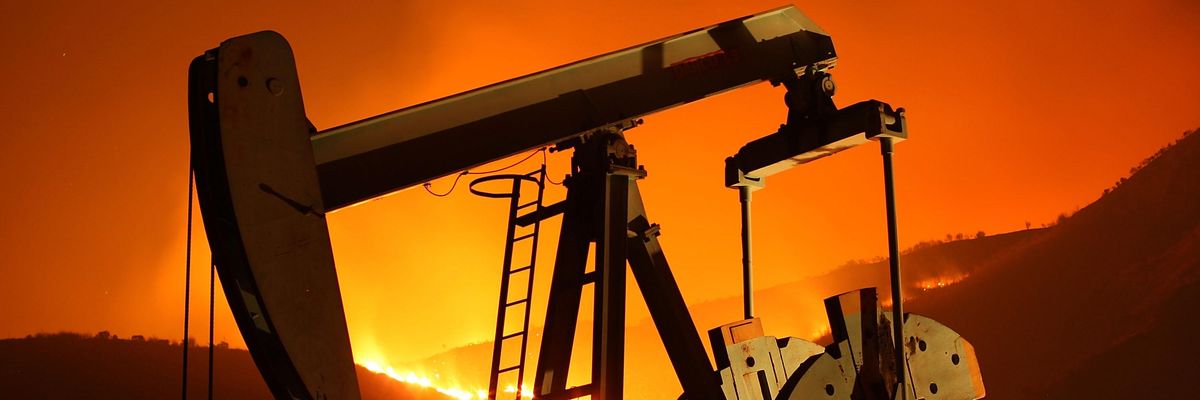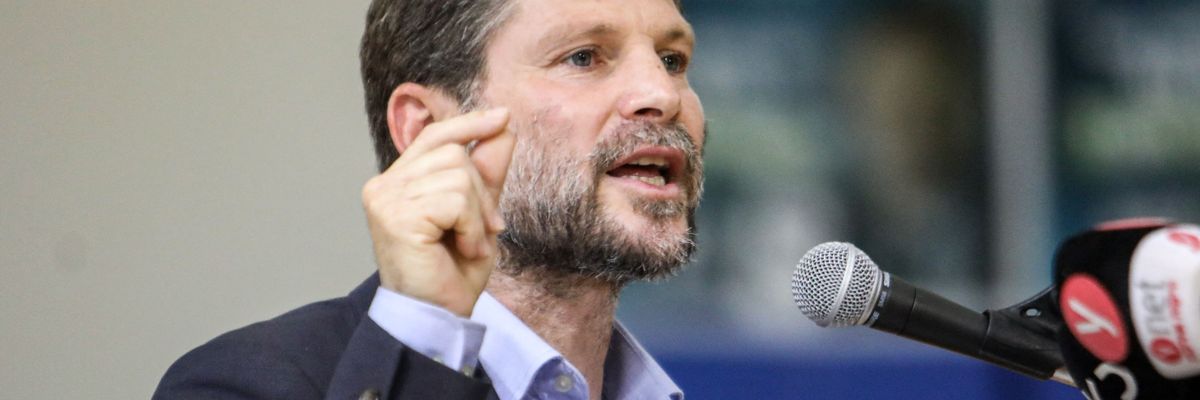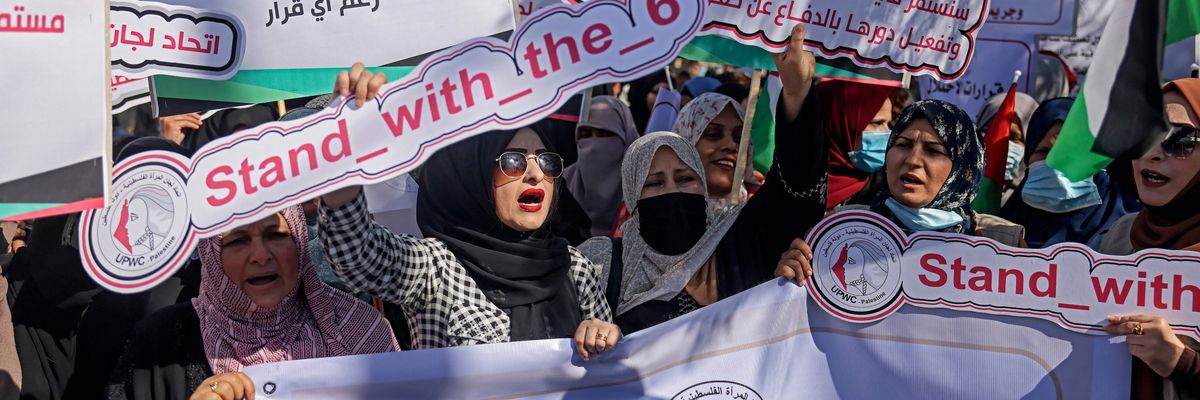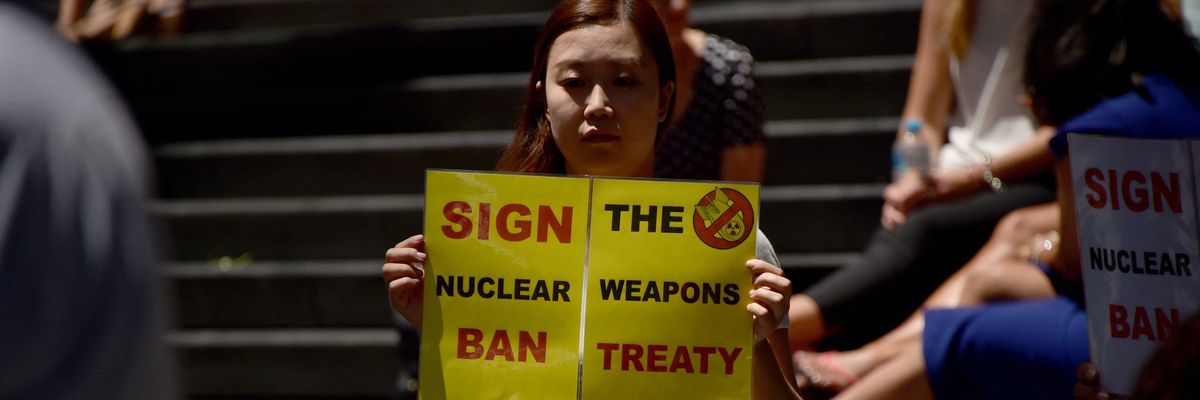"California cannot be a climate, health, and environmental justice leader while giving permits to the oil industry to dig, burn, and dump toxic pollution in our communities, air, and water."

An oil well pumps in a neighborhood near Shell's Alamitos No. 1 discovery well on Signal Hill in Long Beach.
(Photo: David McNew/Getty Images)
BRETT WILKINS
Jun 12, 2023
More than 100 scientists on Monday urged California Gov. Gavin Newsom to stop approving new permits for fossil fuel drilling in the nation's most populous state—especially in residential neighborhoods.
In a letter, the scientists thank Newsom, a Democrat, for "taking key steps toward protecting California's frontline communities and our climate from fossil fuel pollution, including supporting legislation to establish a health and safety buffer zone between communities and oil and gas extraction and taking steps to end Big Oil's price gouging of working families at the pump."
"However, in this time of emergency, we are shocked at the sharp increase in oil and gas permitting by CalGEM, which has approved more than 1,000 permits this year for oil and gas operators to continue drilling," the scientists continued, referring to the state's energy management agency. "Even more shocking is the fact that almost two-thirds of those permits are for projects within the landmark 3,200-foot health and safety buffer you and your administration fought hard to pass last fall."
The letter asserts that "California's oil industry has created an interlinked public health, environmental justice, and climate crisis in our state," and that "public health studies have established that living near oil and gas wells increases the risks of cancer, asthma, and other respiratory diseases, preterm births, low birth weights, and other serious harms."
The scientists say these harms threaten the health of the more than 7 million Californians who live within a mile of fossil fuel wells, which—due to a long history of environmental racism—are concentrated in or near communities of color.
Earlier this month, for example, inspectors found that 27 sites—or 40% of all those examined—in the Lamont-Arvin area of southeastern Kern County were leaking methane, a potent greenhouse gas with 80 times the planet-warming power of carbon dioxide during its first two decades in the atmosphere. Lamont and Arvin are both over 90% Latino.
Some California municipalities—most notably Los Angeles—have banned fossil fuel drilling within their geographical limits, and in April 2021 Newsom announced California would stop issuing new fracking permits by 2024 and completely phase out oil and gas production by 2045.
"California cannot be a climate, health, and environmental justice leader while giving permits to the oil industry to dig, burn, and dump toxic pollution in our communities, air, and water," the scientists stressed. "We implore you to take the science-and-justice-based actions needed now to phase out the fossil fuels driving the escalating climate, health, and justice crises in our state, and oversee an equitable, clean, renewable energy buildout that protects all Californians."
Specifically, the letter's signers call on Newsom to "restart the health and safety rulemaking to permanently establish a... health and safety protection zone that prohibits all oil and gas operations within a minimum 3,200 feet of homes, schools, hospitals, and other sensitive sites," and "stop issuing permits for oil and gas extraction and fossil fuel infrastructure."
Aradhna Tripati, a professor at the Institute of the Environment and Sustainability at the University of California, Los Angeles who signed the new letter, said in a statement that "Gov. Newsom has the power to end the neighborhood oil drilling that is poisoning communities of color first and worst."
"Gov. Newsom has the power to end the neighborhood oil drilling that is poisoning communities of color first and worst."
"We need him to act now to stop drilling near where people live, work, and play to protect Californians on the frontlines of deadly fossil fuel pollution," Tripati added.
Letter signatory Daniel Kammen, the Lau distinguished professor of sustainability at the University of California, Berkeley, said that "there's no time for complacency when oil and gas are fueling California's climate chaos."
"Gov. Newsom should show the world what climate leadership looks like by halting new oil and gas approvals and ramping up rooftop solar and local storage that will protect communities and the climate," Kammen added.
Signer Shaye Wolf, the Center for Biological Diversity's climate science director, said that "scientists are imploring Gov. Newsom to build on his climate action and protect Californians from harmful oil and gas drilling and fossil-fueled climate chaos."
"We have all the evidence we need to end the dirty fossil fuel era in California," Wolf argued. "Now's the time for urgent action."










